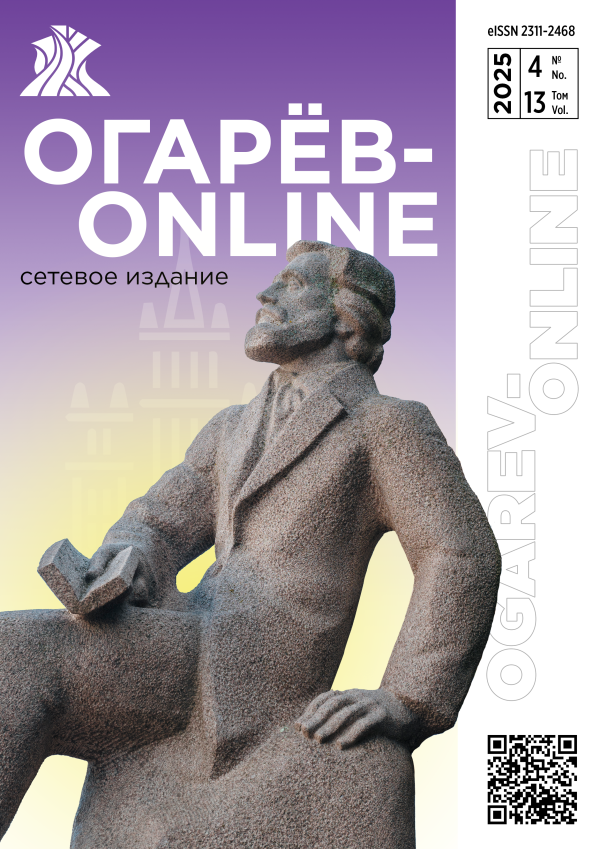Vol 7, No 11 (2019)
- Year: 2019
- Published: 20.10.2019
- Articles: 10
- URL: https://ogarev-online.ru/2311-2468/issue/view/18868
Full Issue


Study of germination of onion seeds at their preliminary ionization with aeroions of negative and positive polarity
Abstract
The paper discusses the development of a device for ionization of onion seeds with negative and positive aeroions. The authors study the germination of seeds ionized with the aeroions. The block diagram of the device being developed and the purpose of the blocks are considered.


Problems of introduction of blockchain technology
Abstract
The blockchain is one of the most discussed information technologies of the recent years. Most publications consider only one side of this technology, namely its advantages over classical solutions. On the other hand, the blockchain has many disadvantages that prevent its practical implementation. The article presents an overview of the limitations and disadvantages of blockchain. The author analyzes some possible ways to overcome them.


Analytical assessment of active power distribution of electric losses in power diode structure
Abstract
The article presents a method for analytical assessment of the active power distribution of electrical losses in the component parts of the structure of a power diode in the state of high conductivity. The study results can be used to calculate and simulate power diodes in various software environments.




Choosing a knowledge representation model when developing an expert training system
Abstract
A critical analysis of the current models of knowledge representation is carried out. The areas of effective application of the considered models of knowledge representation are shown. To develop a training expert system for studying the course “Theory of Automatic Control”, a combined model was chosen, namely, the semantic-frame model of knowledge representation. The fragments of the developed expert training system for studying the course “Theory of Automatic Control” are presented.


Power supply for led lamp
Abstract
The article proposes a schematic diagram of the source for powering a LED lamp designed for use in medical institutions. Its distinguishing features are increased electrical insulation, the use of passive power corrector, and the maximum coefficient of stabilization of the load current. A comparative analysis of the passive power correctors is performed. The simulation results are presented.


Parameter definition of thermal self-impedances of IGBT module power devices
Abstract
The article considers the thermal model of IGBT module based on the discrete representation of transistors and diodes. The authors propose an approach to definition of thermal self-impedances of power devices of IGBT module for the formation of a thermal model by electrothermal analogy. This model considers the dependence of thermal resistance and thermal capacity of power device on its location in the module.


Study of thermoelectric parameters of Peltier elements
Abstract
A study of the basic thermoelectric parameters of the Peltier elements of the TEC–12706 model is carried out. The dependences of the cold side temperature on the currents flowing through the module as well as the maximum retention time of the minimum cold side temperature on the currents were found out. The data was read off different cooling of the elements and off their different location to each other.


Expediency of battery power for remote wireless sensors
Abstract
The article examines the expediency of battery power for a remote sensor used in a wireless data collection system. The authors calculated the graphs showing the approximate operating time of the data collection device, depending on the transmitter power, sensor polling time and types of batteries.

















